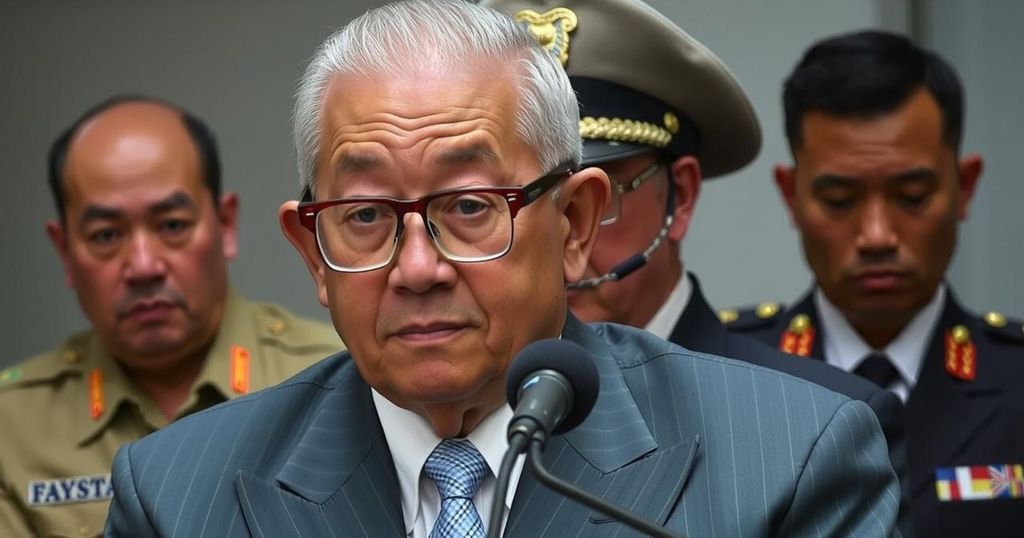Comoros Enters Mourning After Cyclone Chido Devastates Mayotte
Following Cyclone Chido, Comoros declared a national mourning period due to the devastating impact on Mayotte. The cyclone, which reached winds of 220 km/h, has resulted in significant damages and potential casualties in the hundreds. France has mobilized resources to assist as communities face shortages in food, water, and medical care, amidst concerns about undocumented migrants.
The Comoros Islands commenced a week-long national mourning period on Monday following the catastrophic impact of Cyclone Chido, which wreaked havoc on the nearby island of Mayotte. As authorities anticipate significant casualties, particularly among the impoverished populations in shantytowns, President Azali Assoumani announced a mourning period effective until Sunday. Cyclone Chido, classified as a Category 4 storm, brought winds exceeding 220 kilometers per hour, resulting in widespread devastation across the archipelago.
The storm directly impacted Mayotte, which, despite being culturally and geographically tied to Comoros, remains under French administration. Official statistics indicate that Mayotte’s population of 320,000 includes a high percentage of Comorans, many of whom are undocumented migrants. Post-cyclone reports indicate that entire shantytowns have been destroyed, raising alarm over potential fatalities that may number in the hundreds or even thousands, complicating rescue efforts.
In the immediate aftermath, France mobilized military resources to facilitate humanitarian assistance. Essential supplies, rescue workers, and military vehicles were deployed to navigate the debris-strewn landscape, ensuring that aid could reach those in desperate need. Communication failures and contaminated water sources have raised concerns regarding public health, while local officials describe alarming conditions in emergency shelters.
Prefect François-Xavier Bieuville has stated that the cyclone resulted in unprecedented destruction and anticipates that the death toll may never be fully registered, given local customs regarding burials. He emphasized the urgent need for aid as the affected populations begin to face shortages of food and clean drinking water.
The Comoro Islands and Mayotte are part of an archipelago situated between Madagascar and Africa, with Mayotte remaining a French territory following two referendums in 1974 and 1976. With a population largely consisting of Comorans, many individuals travel clandestinely to Mayotte, which is often viewed as a more prosperous destination despite its designation as the poorest region in the European Union. The region faced Cyclone Chido, the first storm of such magnitude in nearly a century, resulting in extensive infrastructure damage and posing severe threats to public safety and health. This natural disaster has exacerbated existing social challenges, as many undocumented migrants may be unaccounted for in relief efforts, further complicating the response to the unfolding humanitarian crisis. The dire state of emergency and the impending need for aid highlight the vulnerabilities faced by Mayotte’s residents, especially within marginalized communities.
Cyclone Chido has inflicted grave consequences on Mayotte, initiating a national mourning period in Comoros and showcasing the precariousness of life in this densely populated and impoverished region. With significant fatalities anticipated, particularly among vulnerable populations in informal settlements, the need for immediate humanitarian assistance from France and international partners remains urgent. As rescue operations progress, the challenges due to migration patterns and cultural practices further complicate the situation. Immediate action is critical in addressing the challenges posed by the cyclone and supporting recovery efforts.
Original Source: www.arabnews.com




Post Comment